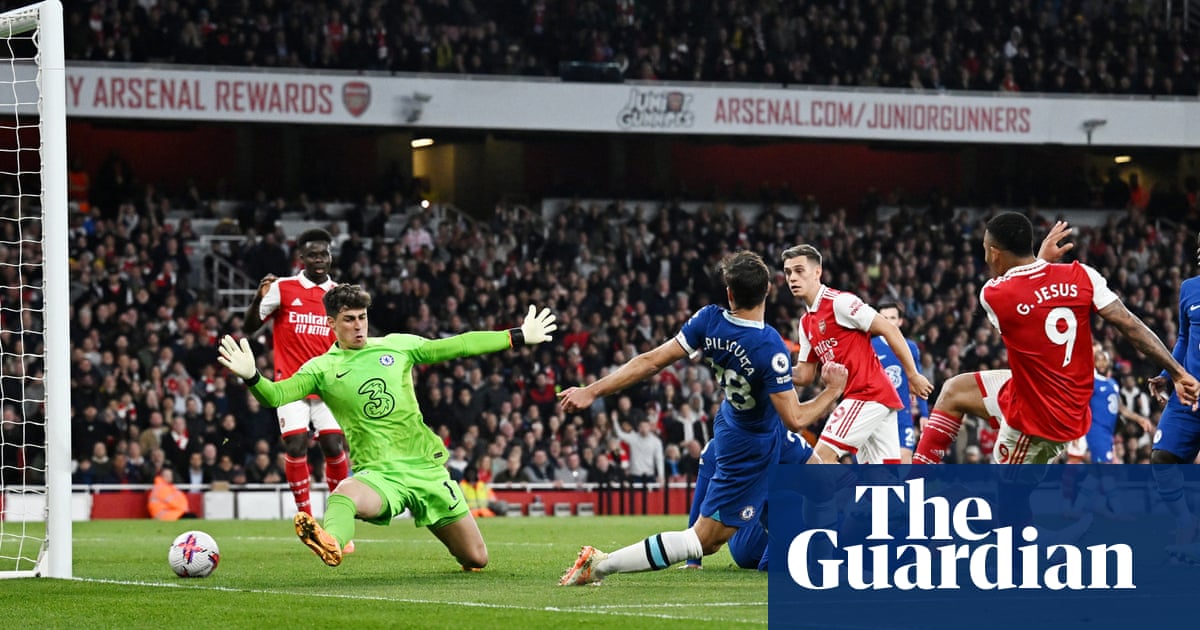
s Sky kicks off the year with a new chief executive for the first time in 13 years, at the top of Dana Strong’s inbox will be assessing the value of the broadcaster’s £3.6bn Premier League TV rights deal.
The American, who previously worked at Virgin Media, will enter the negotiations in a position of strength after Sky managed to drive down the price paid for its current three-year deal by £500m compared with the previous auction.
The auction of UK broadcast rights for the 2022-25 seasons will begin later this year and is expected to be a contest between the current holders – Sky, BT and Amazon.
However, much has changed since the biggest prize in UK sports broadcasting last came up for grabs in 2018 and
experts say the value of Premier League matches could sink by £500m or more from a total of £4.5bn last time round.
The £30bn takeover of Sky by the US cable group Comcast means the Premier League’s cash cow will enter the negotiations without the influence of the Murdoch empire for the first time since it took the competition to pay-TV three decades ago.
The rights auction will be run by a new chief executive at the Premier League, and will kick-off against a destabilising backdrop of a rebellion by the so-called “big six” clubs. “There is tension everywhere,” said one industry executive. “They’re not at war, but they’re not a million miles from it.”
The Premier League is already on the back foot following the disappointing result of the last auction in 2018.
Two months prior, Sky and BT ended a nearly decade-long dispute to strike a channel-sharing deal so that customers could watch all Premier League games without being forced to buy separate TV packages. This reduced the need to bid big or miss out on the best games.
BT, having previously been the prime driver of rights inflation by trying to usurp Sky as the top broadcaster of Premier League matches, shifted strategy to settle for being a “viable second” player. Overall auction takings came in about £600m lower than the previous record £5.1bn, the first decrease since the 2004-05 three-year cycle of rights.
An attempt to restructure some of the packages to draw in a new, deep-pocketed Silicon Valley bidding threat failed, with Amazon finally stepping in paying just £90m over three years for 20 games a season.
“The Premier League has managed to push up the cost of rights over the last few decades,” said Richard Broughton, media analyst at Ampere Analysis. “But the market for sports rights is now an awful lot flatter than it has been historically. With BT pulling back and the partnership in place with Sky there is less incentive for aggressive bidding by either of the two main rights holders.”
Broughton said with a “lack of serious competition” from Amazon or a sports streamer like DAZN that “Sky looks to hold the cards this time”. He added: “The sport needs a new model, whether it will appear this time around is the question.”
Sports analysts say that following rampant inflation rights deals are now coming in about 10% down on average as they are renewed. This would equate to about a £450m drop in the case of the UK Premier League rights.
Amazon is an opportunistic rights buyer with deals including the Champions League in Germany and a new deal in Italy in December, but it has remained tightly cost-conscious.
“The idea that Amazon is going to spend £1bn at the next auction is laughable,” said one TV industry executive who has been involved in a number of Premier League auctions. “There are a lot of other cheap rights Amazon can invest in, which is what they have done historically.”
While companies such as Facebook, which has dabbled in football rights in regions including India and Latin America, and YouTube, which has live-streamed the Champions League final for free for the last five years in a deal with BT, have the financial firepower to make a big bid the strategic rationale and economics don’t stack up.
“You can absolutely rule Facebook out, and the same goes for YouTube,” said an executive who has negotiated deals involving the social media companies. “The interest would only be in clips and highlights … The big question is what is going to be in the rights tender.”
Events during the coronavirus pandemic, when pay-TV companies were able to see the impact on their business of not airing matches for the first time, could also influence the auction. The Premier League’s disastrous short-lived move to offer matches not scheduled on TV for an extra £14.95 was widely condemned as profiteering during the pandemic and sparked the ire of broadcast partners.
In October, it emerged that Liverpool and Manchester United were proposing a land grab, called Project Big Picture, giving the big six clubs effective control of top flight football. The Premier League managed to quash that, then a second plan emerged, which is still in play, involving the biggest teams reducing domestic matches to join a new European premier league.
“The clubs are more and more involved in determining the media rights strategy and the old relationships are crumbling,” said a TV industry executive. “With all the uncertainty the fight over the future of the game has thrown up, if I were Sky, and to an extent BT, I’d be thinking can I depend on the Premier League as the premium product it is now over the next 10 years?”












